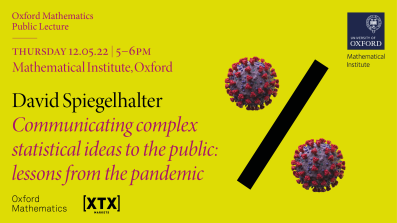Bacteria represent the major component of the world’s biomass. A number of these bacteria are motile and swim with the use of flagellar filaments, which are slender helical appendages attached to a cell body by a flexible hook. Low Reynolds number hydrodynamics is the key for flagella to generate propulsion at a microscale [1]. In this talk I will discuss two projects related to swimming of a model bacterium Escherichia coli (E. coli).
E. coli has many flagellar filaments that are wrapped in a bundle and rotate in a counterclockwise fashion (if viewed from behind the cell) during the so-called ‘runs’, wherein the cell moves steadily forward. In between runs, the cell undergoes quick ‘tumble’ events, during which at least one flagellum reverses its rotation direction and separates from the bundle, resulting in erratic motion in place. Alternating between runs and tumbles allows cells to sample space by stochastically changing their propulsion direction after each tumble. In the first part of the talk, I will discuss how cells reorient during tumble and the mechanical forces at play and show the predominant role of hydrodynamics in setting the reorientation angle [2].
In the second part, I will talk about hydrodynamics of bacteria near walls in visco-elastic fluids. Flagellar motility next to surfaces in such fluids is crucial for bacterial transport and biofilm formation. In Newtonian fluids, bacteria are known to accumulate near walls where they swim in circles [3,4], while experimental results from our collaborators at the Wu Lab (Chinese University of Hong Kong) show that in polymeric liquids this accumulation is significantly reduced. We use a combination of analytical and numerical models to propose that this reduction is due to a viscoelastic lift directed away from the plane wall induced by flagellar rotation. This viscoelastic lift force weakens hydrodynamic interaction between flagellated swimmers and nearby surfaces, which results in a decrease in surface accumulation for the cells.
References
[1] Lauga, Eric. "Bacterial hydrodynamics." Annual Review of Fluid Mechanics 48 (2016): 105-130.
[2] Dvoriashyna, Mariia, and Eric Lauga. "Hydrodynamics and direction change of tumbling bacteria." Plos one 16.7 (2021): e0254551.
[3] Berke, Allison P., et al. "Hydrodynamic attraction of swimming microorganisms by surfaces." Physical Review Letters 101.3 (2008): 038102.
[4] Lauga, Eric, et al. "Swimming in circles: motion of bacteria near solid boundaries." Biophysical journal 90.2 (2006): 400-412.


